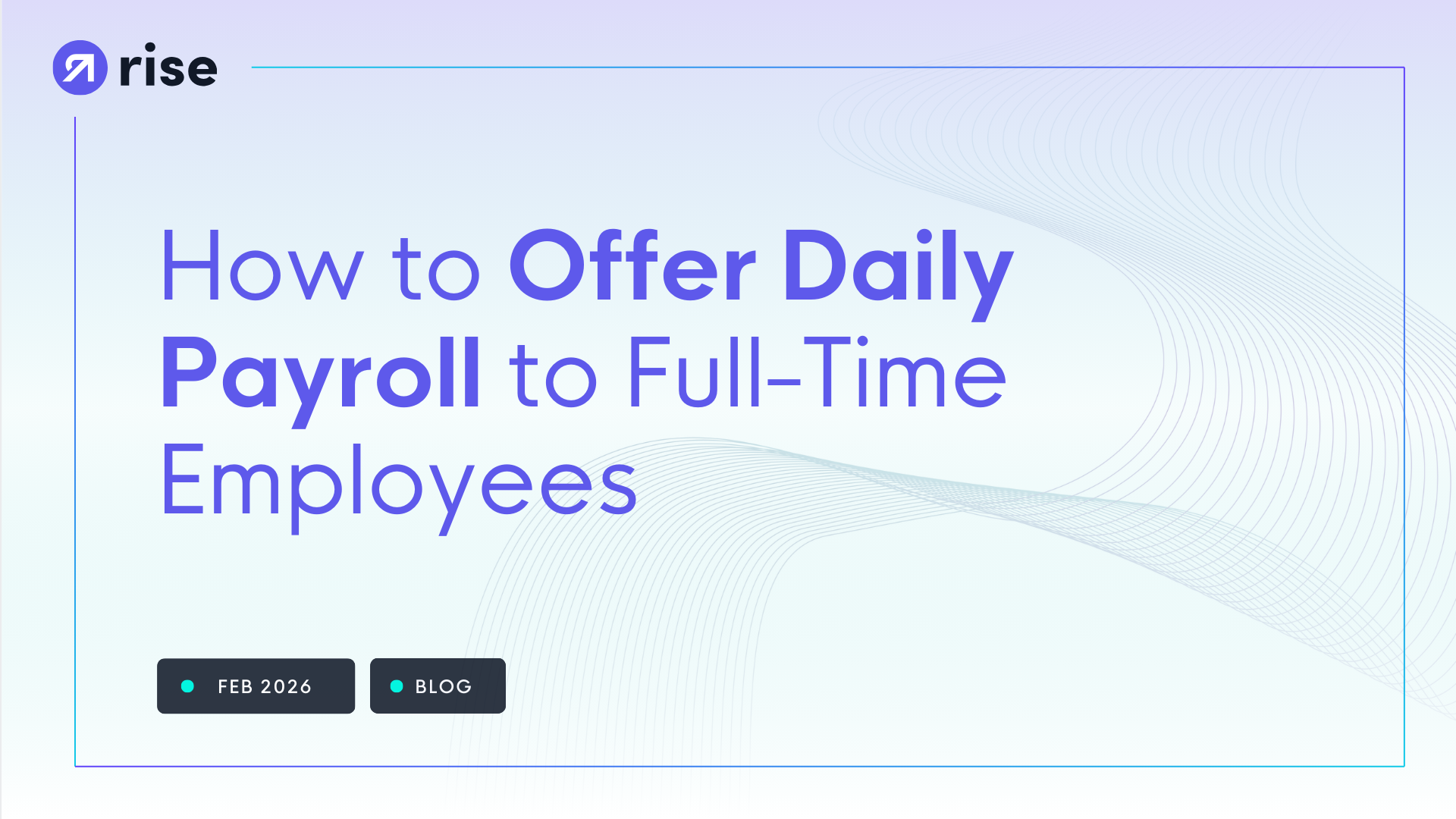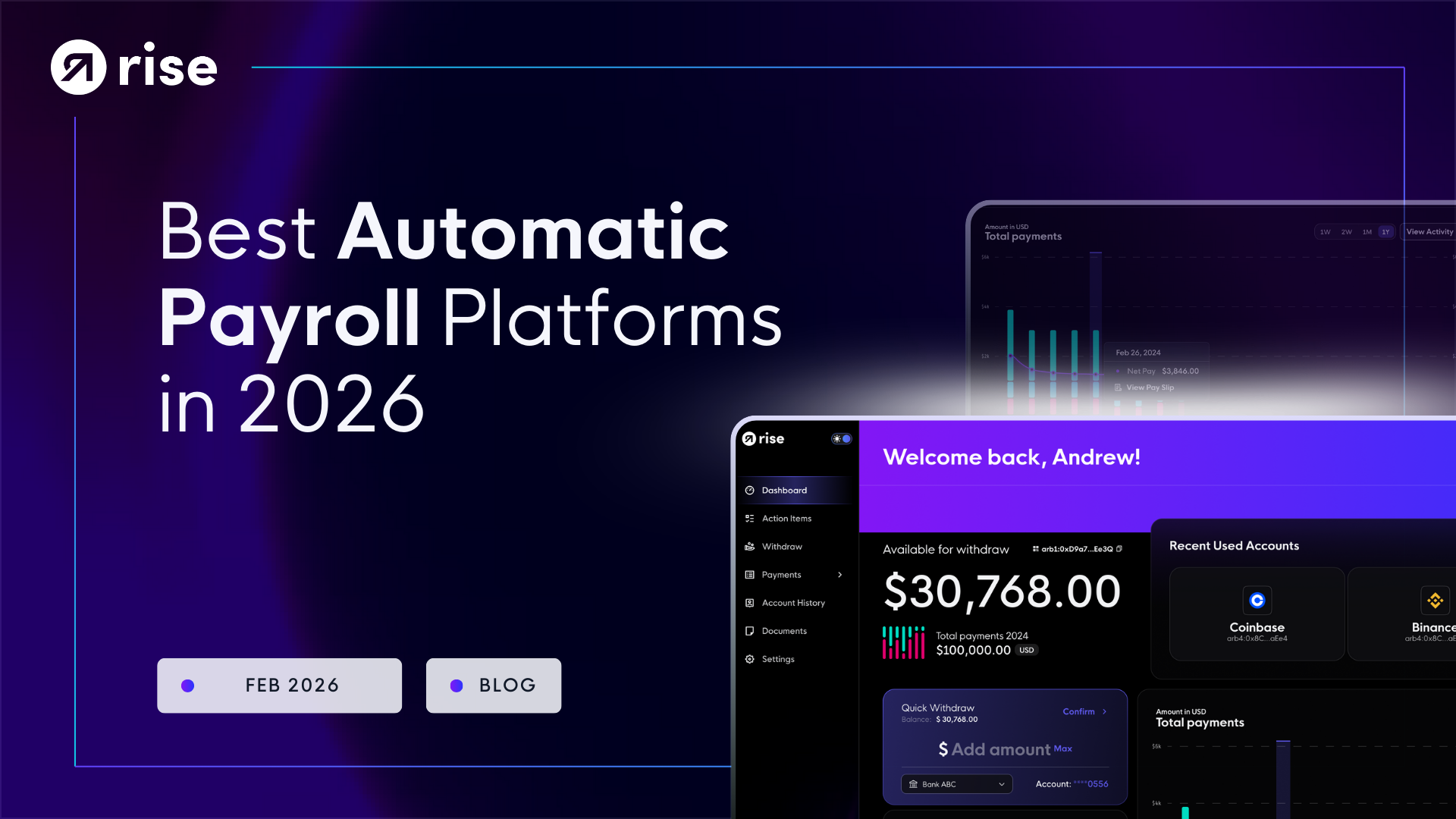The rise in remote work and collaboration amongst dispersed, global teams has highlighted the cracks in the infrastructure of traditional payroll. While many companies rely on direct deposits, some still use mailed checks, with both models typically necessitating either a local bank account or address. For companies that want to expand their operations globally, these old school systems are inadequate for facilitating borderless payments. In order to effectively onboard a remote workforce spread across continents, a system for flexible payroll must be implemented.
Introducing hybrid payroll, a scalable and streamlined solution for compensating the global workforce. Typically, hybrid payroll entails employee compensation across a range of currencies which include crypto, fiat, and stablecoins. Depending on the solution, payroll can be funded from a digital wallet or a traditional bank account, and employees can receive remuneration in their preferred currency. Through the use of a fully digital payroll system, all payments can be delivered close-to instantly, fees are significantly reduced, and cross-border transactions are enabled.
Debunking the All-or-Nothing Mindset
While many traditional companies have already begun adopting hybrid payroll solutions, there still exist misconceptions around their applications. One of the most significant barriers to widespread adoption is fear around crypto’s volatility. For those less familiar with the crypto ecosystem, the term ‘hybrid crypto payroll’ insinuates that all payments must be made in crypto. The truth is, however, that while hybrid crypto payroll unlocks the option for crypto payments, it does not mean that they are the singular option.
A comprehensive hybrid solution allows for a company to fund payroll in the currency of their choosing. This means that while a web3 company can fund payroll from a digital wallet, a traditional company can fund payroll in fiat currency from a bank account. Without ever having to personally interact with crypto, a traditional company can give their global workforce the options to effortlessly withdraw funds in their preferred currency, virtual currencies included.
Another misconception that arises with hybrid payroll is a confusion around available virtual currencies. Despite the fact that stablecoins are a popular form of compensation, when hearing the term ‘hybrid crypto payroll’ their inclusion is often overlooked.
Stablecoin usage is gaining more traction in the mainstream. At present, their total market cap is a soaring $128 B and their daily trading volume exceeds $44 B. As more companies hold savings in stablecoins and more workers- oftentimes those based in economies facing inflation- seek options for remuneration in stable assets, the ability to leverage hybrid payroll for stablecoin payments is highly advantageous.
Built on blockchain networks, stablecoins provide many of the same core benefits as crypto with regards to payroll - borderless by nature, instant delivery, low transaction costs- without the risk associated with crypto’s volatility. When onboarding with a hybrid payroll solution, which will most typically leverage blockchain technology, the inclusion of stablecoins in payment options is to be expected.
Hybrid Payroll Use Cases
The application of hybrid payroll ranges greatly and is particularly advantageous in scenarios involving cross-border compensation. For companies and workers based in countries undergoing economic instability, stablecoins represent a meaningful way to hedge inflation. For a company, holding a full or partial treasury in stablecoins means avoiding the risk of operating at a loss.
The ease of hybrid payroll allows for compensation to be funded in the currency of a company’s treasury without having to pay costly conversion rates between stablecoins, crypto, and fiat currency. For talent based in unstable economies, the ability to receive wages in digital currencies means more opportunity to save in stable assets or to invest in potentially highly-profitable cryptos.
In the case of companies that want to expand their contractor base and unlock borderless access to top talent, a hybrid payroll solution provides an ideal means of achieving this. Rather than establishing foreign bank accounts and payroll infrastructure in the countries in which a company is contracting, a hybrid crypto payroll solution that also offers EOR services allows for limitless, streamlined, and scalable hiring.
Advantages of a Hybrid Payroll Model
The flexibility that comes with hybrid payroll cannot be overstated. While one of the benefits is the ability to fund and receive payroll across a range of fiat and virtual currencies, a feature of equal importance is the option for contractors to receive their payouts in customizable ratios. Rather than receiving a full paycheck in either fiat or crypto, a contractor or employee can opt for the ratio of their choosing, whether that’s 50/50, 80/20, or beyond.
This plays a key role in talent attraction and retention. By offering flexible hybrid payroll, workers can receive a partial payout in fiat for covering daily expenses while simultaneously unlocking access to the DeFi ecosystem to directly invest in crypto, or save in stablecoins. As it becomes more important than ever before to offer competitive compensation packages to appeal to top talent, flexible ratios represent a new commitment to catering to the employee experience.
Harnessing flexible compensation both provides measurable hiring benefits and a more streamlined model for managing payroll. For web3 companies holding their treasuries in digital wallets, funding payroll directly from their wallet addresses means bypassing the slow and costly step of going through a third-party intermediary to fund payroll from a bank account. Rather than converting crypto or stablecoins into fiat, and then transferring funds into a traditional bank account, all interactions can be done over blockchain networks.
For traditional companies that want to attract employees with the opportunity for crypto compensation, rather than opening an account on a crypto platform or creating a digital wallet, payroll can be funded directly from a bank account in fiat currency. From there, workers can choose their preferred payout method.
Management Systems for Employing a Hybrid Payroll Model
For companies that are looking into investing partial treasuries in crypto, or for web3-native companies who already hold crypto, striking a balance between volatile and stable assets is critical. Crypto treasury management operates under a different set of rules than traditional treasury management. Because one of the greatest concerns is volatility, ensuring liquidity is of top priority. In the case of a crypto winter or extreme price drops, a company must hold enough stable assets in order to cover operational expenses for up to a year, whether those are in the form of fiat or stablecoins.
From there, it is up to the company to choose the currency in which payroll is issued. If a certain token held in one’s treasury is down in price, rather than operating at a loss, it is advisable to cover employee salaries in fiat or stablecoins. Unlike token compensation or traditional payroll, which only allow for single-currency payments, with a hybrid system, companies can change the currency in which they fund payroll month by month.
While paying employee salaries in fiat currency is relatively straightforward, compliance complications can arise when remunerating workers in crypto. This is due to the ever-changing regulatory landscape and the highly-variable laws around crypto. While in some countries crypto compensation is completely legal, in others, it can be restricted or even illegal.
To ensure total compliance when funding payroll in digital assets, hybrid payroll solutions such as Rise automatically route payment into USD. As a result, an organization does not need to worry about compliance concerns when funding their payroll in USDC. For the company and the employee alike, compliance is both simplified and guaranteed.
The Future of Payroll: A Hybrid Approach
As global hiring increased by 145% in 2022, it can be predicted that a rising number of companies will be on the lookout for future-proof payroll solutions that accommodate the needs of an international workforce. In addition to practical concerns, today’s modern era of hiring centers the employee experience more than ever before. To appeal to competitive talent, offering above-and-beyond flexibility in compensation is a must with the post-pandemic workforce prioritizing flexibility above most else.
For future-facing companies, an easy way to appeal to international contractors, tech-savvy workers, and beyond is through the integration of a hybrid payroll system. When using a payment system that is borderless by nature, the hiring process can be centered around best fit and skill compatibility rather than geographical location. For talent, the ability to not only choose payment in one’s preferred currency but for it to be received close-to instantly is a major draw.
Onboarding with a Flexible Payroll Solution
Whether you’re a crypto-native organization or a traditional company, adopting a hybrid payroll model is a borderless, limitless, efficient, and cost-effective way to streamline and scale compensation. Adapting to the massive changes that the global workforce is currently undergoing will be key for a company’s survival: in the face of tectonic shifts, such as the COVID-19 pandemic, companies that are more agile are better positioned for success. Taking the necessary steps to adopt a more agile mindset and a more flexible business model will determine a company’s ability to thrive.
An easy step towards embracing adaptability in the face of a workforce that is rapidly becoming more remote and global is through the integration of a hybrid payroll solution. By ensuring access to borderless hiring, a company can prepare themselves for any future iterations of work.




















